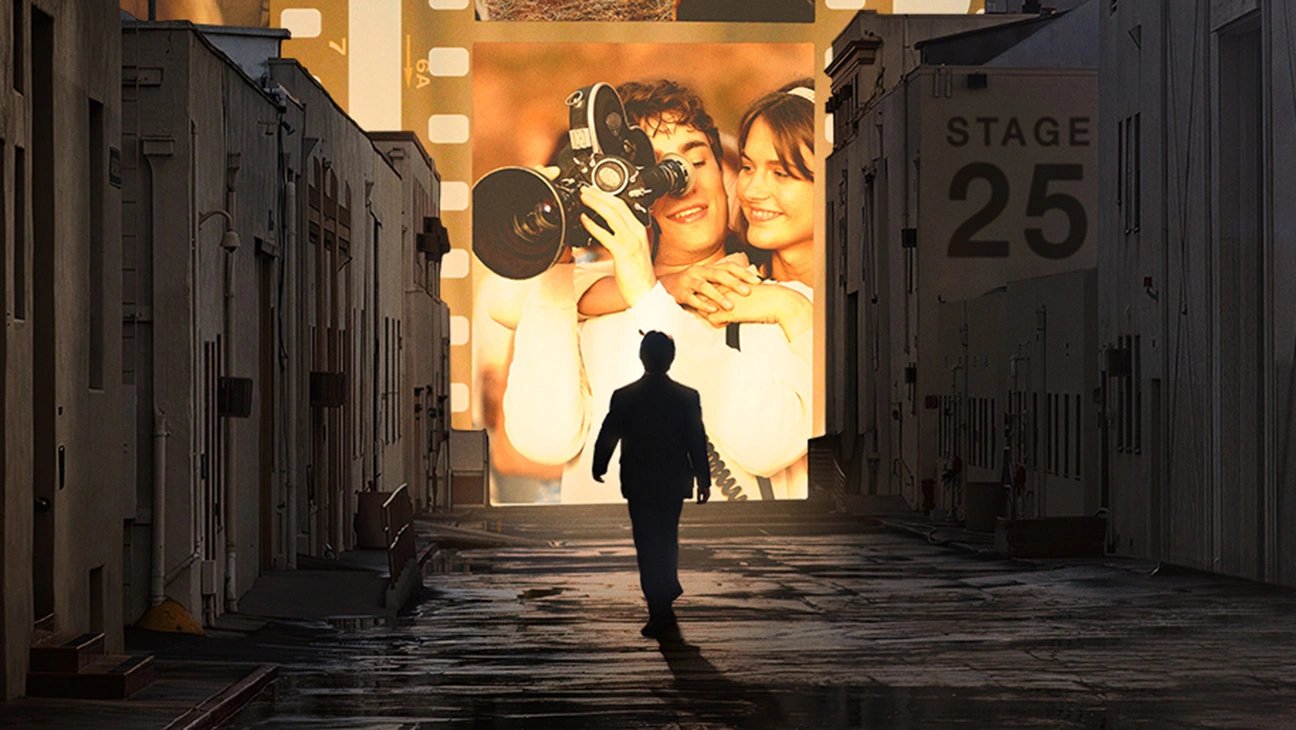‘The Fabelmans’ Review: Spielberg’s Magic Touch Makes For Yet Another Masterpiece [TIFF 2022]
THE MASTER RETURNS WITH HIS MOST TOUCHING AND TENDER FILM YET.
Legendary director Steven Spielberg’s newest, The Fabelmans, marks the newest entry into the latest trend from Hollywood’s finest directors, making films clearly inspired by their own childhood lives. With The Fabelmans, Spielberg’s best qualities and abilities as a filmmaker are being demonstrated in every second of the film, marking for his most emotional film in some time, and ultimately resulting in one of his finest films, in an already beyond impeccable career.
The Fabelmans follows the Jewish-American family of the same name, with our protagonist, Sammy, played by fresh face Gabriel LaBelle for the majority of the film. The film explores Sammy’s coming-of-age story across many states in the backdrop of a post-war America, with the stories of his family, their hardships, triumphs, and everything in between. It’s abundantly clear that The Fabelmans is at the very least, loosely an autobiographical effort on part of Spielberg, and succeeds brilliantly at telling a personal yet universally accessible story, housing such a genuine-feeling and empathetic emotional core that never feels indulgent nor manipulative, which effortlessly avoids several autobiographical pitfalls that would plague any lesser filmmaker. Screenwriter extraordinaire Tony Kushner infuses his renowned dramatic and comedic levities into The Fabelmans, marking another slam-dunk collaboration between the two.
From the earliest portion of the film, it’s revealed through a few tremendous scenes, that Sammy (LaBelle) is destined to become a filmmaker, exhibiting a love for cinema and filmmaking at such an early age, expressed so wonderfully on the screen with a sense of childhood wonder and joy that can ironically, only be described as Spielbergian. Through Sammy, Spielberg pays homage to the films that he loved as a child, in the form of recreations of spaghetti westerns done by Sammy and his friends, as well as revisiting family memories that are bound to leave any audience member misty-eyed.
The theme of desire, specifically the desire to create art, is a pivotal one in The Fabelmans, and meshes beautifully with the other main theme, family, as described in a wonderfully memorable scene starring Judd Hirsch. This main theme is explored wonderfully and to the full extent that it can be. While Sammy goes through the pivotal events in his life, his family is a driving force in every aspect of his story. His father, Burt (Paul Dano) is an engineer, whose very nature is so embedded in logic that he often clashes with Sammy, since he is unable to understand his love of filmmaking, and sometimes, Sammy as a whole. His mother, Mitzie, played by Michelle Williams in one of the year’s best performances, was an aspiring pianist, and is more encouraging of Sammy and his desires. Williams plays her role with such grace and lovingness, and her work in particular is a surefire Oscar conversation. The film explores and develops all of its character relationships excellently, but the scenes with Sammy and his mother Mitzie are true standouts. Spielberg’s signature ability to evoke emotion in every which way he can is operating with full force, and the film is all the more better for it. Seth Rogen, in a welcomed turn, is able to show a more complicated character in Sammy’s uncle, Benny, who is not a Fabelman by blood, but certainly by spirit. Sammy also confides in his sisters, Reggie and Natalie, played by Julia Butters and Keeley Karsten, respectively, both of whom bring such a warmth and reassurance into Sammy’s life that translates onto the screen gracefully, and would have further benefited the film from featuring more of.
Spielberg’s finger is certainly on the pulse emotionally, but also ‘directorially’. Spielberg is undoubtedly one of the most accomplished people in the world to have ever touched a camera, and with every succeeding film, Fabelmans included, finds new ways to use it, that continually amaze and immerse even the most cynical of audiences. Longtime Spielberg collaborator, cinematographer Janus Kamiński, paints a idyllic image of 60’s America through his brilliant use of stark browns, greys and whites in his colour palette, much like his brilliant work with Spielberg in last year’s West Side Story, and The Post even earlier. Kamiński’s innate sense of visual storytelling, and impeccable ability to always be in sync with Spielberg once again accentuates a beautifully resonant narrative with a beautifully captured film.
It may go without saying that maestro John Williams is debatably the world’s most talented composer, and to no surprise, once again evokes emotion in the most beautiful ways possible, delivering once again, an incomparably joyful and tender score. The Fabelmans is yet again another example that Williams and Spielberg are a match made in heaven, and if The Fabelmans marks their last collaboration together, their remarkable tenure together will have gone out on a beautiful note. Having just been named the recipient of the prestigious People’s Choice Award at the Toronto International Film Festival, it’s no surprise that the universal magic of Spielberg will bring a truly enlightening and resonant experience when it releases in cinemas later this November.
While this review has sung the praises of The Fabelmans ad nauseam, it’s very much a film that speaks for itself, and is just an incredible force of sincerity, love, and creativity that simply cannot be missed.



